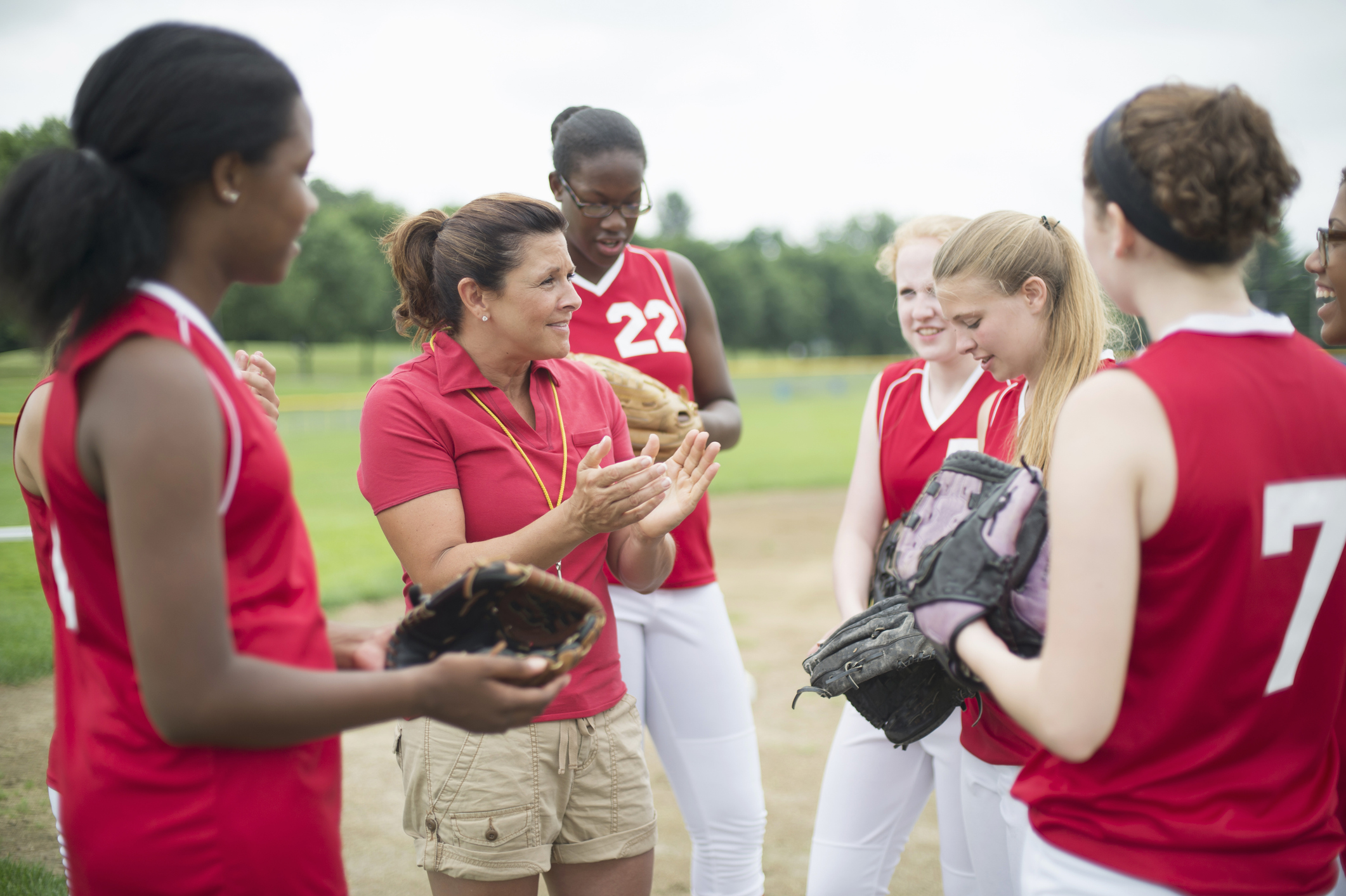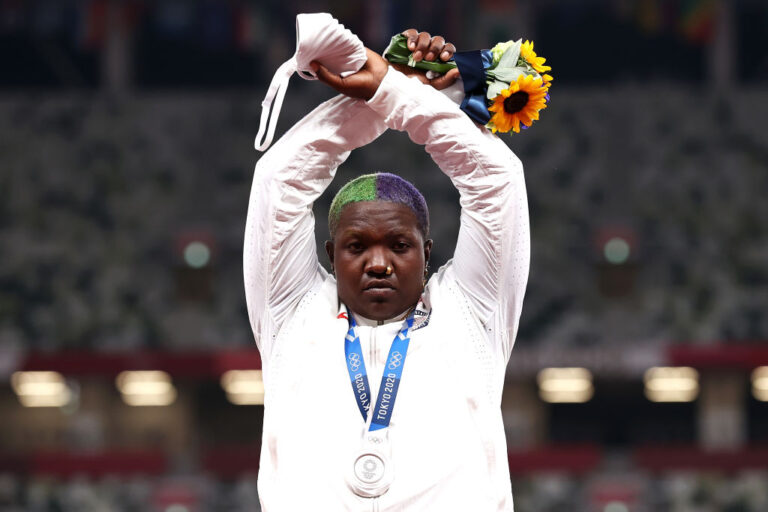Be Her Reason to Stay in Sport: The Importance of Coaching HER
Why this matters
Girls' participation in sport has increased considerably since the passage of Title IX more than 50 years ago, but many young women still do not get enough physical exercise, and those who do become athletes tend to drop out sooner than others, in large part due to the lack of specific and personalized coaching for girls in sport.
In the 50-plus years since the passage of Title IX, girls have entered sport – a domain traditionally created by and for boys and men – in great numbers. Girls’ increased inclusion in sport means they not only have the opportunity to take the sporting field and win championships but also can accrue numerous benefits.
Prominent organizations such as UNESCO’s Fit for Life initiative emphasize the importance of play and sport in developing healthier kids, thriving communities, and a more equitable future. For girls, the positive impact of sport further includes improved physical health, mental well-being, increased confidence, and improved academic achievement.
Despite girls’ entry in sport and resulting asset accrual and achievements, inequities, challenges, and barriers remain. Based on research, girls are given less access and fewer resources and opportunities to be physically active, while data indicate girls enter sport later and drop out earlier and at higher rates than boys.
The World Health Organization estimates that more than 75% of girls ages 11-17 do not get enough physical activity. The COVID-19 pandemic exacerbated physical inactivity rates for all children, and girls specifically. In addition, girls from underserved communities experience even greater social, socioeconomic, and access barriers to sport. To begin to solve these persistent problems, the Tucker Center for Research on Girls & Women in Sport partnered with Nike to address systemic inequities in girls’ sport participation and create Coaching HER – a free, digital, evidence-informed, global tool to train coaches on how best to support girls in sport.
Officially launched in March 2023, Coaching HER is an industry-first tool designed for any coach of young people who identify as girls in any sport. Coaching HER is girl-focused, gender-responsive, and grounded in the recognition that girls experience the world differently than boys, face many barriers, and are treated differently simply because they are girls.
Why Coaching HER?
Coaches are a primary influence in a girl’s sports journey. They are one of the most important factors in why girls stay in, or drop out of, sports. Girls need coaches to create welcoming and safe environments to help them thrive. Coaches are often powerful transmitters of gender beliefs and norms. These gendered beliefs of sport coaches, most of whom are men, are rarely questioned and uncritically accepted as the norm. Yet these same gendered beliefs likely perpetuate sexism, misogyny, gender bias, and stereotypes that in part are factors in shaping girls’ negative self-perceptions and sport experiences. However, coaches are often unaware, untrained, undertrained, or lacking in the confidence to address gender stereotypes, gender identities, ways to support girls, and girls’ unique needs in relation to sport.
Gender-responsive coach education, like Coaching HER, can help coaches develop the awareness, skills, and tools necessary to confront their own gender biases and traditional gender ideologies. Sport and physical activity are human rights, and girls deserve to play in sport environments free of sexism and gender stereotypes so optimal development, experience, and performance can occur.
Addressing gender stereotypes of coaches in sport is an important social issue that warrants action. Stereotypes are prevalent in achievement domains (i.e., sport) and negative performance-related stereotypes (e.g., girls are not sporty) can hinder performance and have many harmful effects on self-perceptions, motivation, emotion, cognition, and sport participation. Repeated exposure to negative stereotypes and chronic experiences of stereotype threat might be one explanation of why, in many countries, boys and men participate more than girls and women in organized sport clubs and why more girls than boys quit organized sport during adolescence.
Developing Coaching HER
Coaching HER is a free digital toolkit and the most current, comprehensive, evidence-based resource on coaching young people who identify as girls. Coaching HER’s seven modules are designed to engage coaches through interactive content and to accommodate their busy schedules.
Coaching HER, at its core, is about understanding how gender, gender stereotypes, and gender bias impact every aspect of coaching as well as every aspect of girls’ sport experiences. Coaching HER recognizes that coaching her means not coaching every girl the same way (i.e., coach the individual girl) AND recognizes that girls’ experiences in the world are different from boys’. Girls have varying identities, meaning that no two girls face the same obstacles, stereotypes, and biases in sport. Coaching HER is about helping coaches reflect on their own attitudes and beliefs about girls and women, identify what they can change, and learn tools to become better coaches for girls.
Utilizing both the voices of girls and coaches as well as academic research in the fields of feminist studies, sport sociology, sport psychology, and coaching science, we developed seven foundational modules that provide information and offer actions coaches can take to help all girls reach their full potential. For girls to flourish in sport, it takes knowledgeable, intentional, caring, and gender-responsive coaches.
Coaching HER Is for Everyone
In the current political moment, female-identifying individuals are marginalized, a situation that has created an exclusionary environment for trans, non-binary, and gender-diverse athletes. The system of sport is set up as a binary system – where there are women’s sport and men’s sport, and that system is firmly entrenched and currently highly contested.
We agree with feminist sport scholars that supportive, inclusive, and equitable environments for the health and well-being of girls, women, and gender-expansive people further requires gender-responsive approaches that promote broader cultural change – including coach education. Coach education must move away from ignoring gender or reinforcing damaging gender stereotypes yet recognize that girls experience the world differently because they are girls.
Coaching HER in its title and naming reflects this binary; however, it is not meant to reinforce the binary or be exclusionary. HER to us means anyone who fully, or in part, identifies as a girl or woman. Coaching HER upskills coaches in creating an inclusive, welcome, safe environment and in learning to resist and unpack their own gender stereotypical and biased assumptions. Coaching HER helps to address the true threats to women’s sports – stereotypes, bias, gendered harassment – and acknowledges that gender diverse athletes are not a threat.
Responses to Coaching HER
Since the program’s launch in March 2023, the response to Coaching HER has been positive among participants, conference attendees, and sport stakeholders. Coaching HER was shared with global media at Nike’s World Headquarters, at the Aspen Institute’s Project Play Summit, at the WeCOACH/NCAA Women Coaches Academy, and at the Women Coaches Symposium. Pilot testing of Coaching HER among coaches revealed that Coaching HER was effective in reducing gender stereotypical attitudes among coaches.
Feedback from coaches has been positive. Coaches indicated the program was enjoyable, interactive, relevant, easy to follow, and applicable to their coaching practices. Coaches have emphasized the importance and uniqueness of a program like Coaching HER, with one coach stating:
“Thank you for doing this, coming from a women’s wrestling coach. I wrestled boys all throughout high school, and became a coach right around the time North Carolina sanctioned wrestling for women to have their own division. So I am trying to make sure to deconstruct any coaching methods or words I use since I grew up being coached and practicing with all males and sometimes find myself embracing gender stereotypes because of how they were expressed commonly when I was in High School”
Another coach stated:
“There is no blueprint for coaching girls/women. If the curriculum does exist, it’s written by a man — which doesn’t make much sense. If we want to raise, grow, and empower young women to become stronger, more authentic versions of themselves, then the curriculum needs to be relatable, understandable, and practical.”
What’s Next for Coaching HER
New and relevant Coaching HER content is continually being created. In particular, new modules related to menstruation, mental health, and body image are in development. Although originally launched in English, Coaching HER will be translated into different languages – starting with German, Italian, French, and Spanish – to ensure coaches from all over the world can engage with the content.
Coaching HER can be accessed by visiting coachingher.com. Check it out, and help spread the word. This summer, we are onboarding organizational partners and sport clubs who would like to integrate Coaching HER in their coach education programs and offer it at no cost.
If you are interested in participating, please contact Dr. Courtney Boucher, Assistant Director for Research and Programming, at the Tucker Center (bouch114@umn.edu).
Be Her Reason to Stay in Sport.
Monthly Issue
The Modern Sportswoman
After a record-breaking March Madness in the United States and heading into what is sure to be a strong FIFA World Cup this summer, women throughout the world are using this growth to secure greater security and influence.
Explosive growth is exciting, but intentional growth could create the power, permanence, and protection that women’s sports deserves.
We explore what that growth could look like in our latest digital issue.



